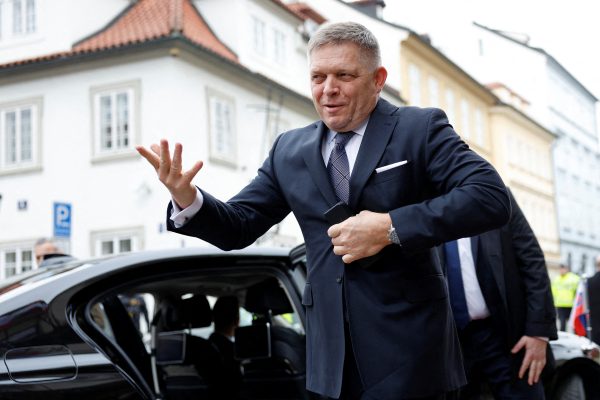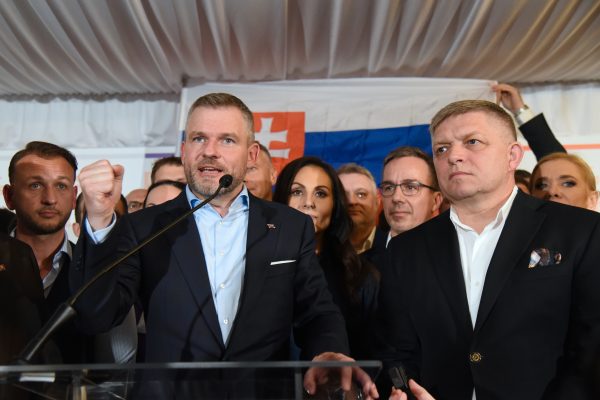There is political turbulence in Georgia, once again. This month’s local elections failed to deliver clear winners and new polls will be held on October 30.
In many countries, that might not matter too much, In Georgia, where the two main parties are at one another’s throats, it matters a lot. The point was underlined by the sudden return from exile of Georgian president Mikheil Saakashvili, who was almost immediately arrested and locked away to serve a six-year sentence for having an opposition MP beaten by government thugs.
The ruling party, Georgian Dream (GD), did reasonably well, although it did not receive enough votes to win the mayoral election in Tbilisi. Overall, the party took 46.7% of votes, compared to 30.7% for Saakashvili’s United National Movement (UNM), the biggest opposition force. Victory is achieved with 50% of the vote, so run-off ballots will be held in the capital and in all big and mid-size cities across the country.
Concerns regarding alleged vote-buying and the heavy use of administrative resources by the government have marred the overall election process. An Organization for Security and Cooperation in Europe (OSCE) observer mission said although candidates were able to campaign freely, the overall process was “marred by wide-spread and consistent allegations of intimidation, vote-buying, pressure on candidates and voters, and an unlevel playing field”.
Meanwhile, the opposition is rather radicalized, which leaves little room for constructive dialogue. Such deep-seated antagonism precludes a long-term solution to the recurrent internal political crises that have rocked the country since 2020, when the results of the parliamentary elections were widely contested by the opposition.
Matters are unlikely to be improved by Saakashvili’s incarceration. The ex-president may instead be sent back to Ukraine, whose citizenship he presently holds and where he has lived intermittently since 2013. Nonetheless, the stealth and speed of Saakashvili’s actions raised significant questions over the effectiveness of security agencies and added to the pressures on the current government. It may also give some momentum to the opposition before the second vote.
Yet Saakashvili’s presence in Georgia also frightens ruling party supporters and non-aligned voters, who fear the UNM’s return. Its years of power, from 2004-2012, did in fairness mark significant progress in state building, but its achievements were blemished by the extensive arbitrary misuse of security agencies’ powers, which eventually turned large sections of the population against the government.
In the end, the results are unlikely to resolve the fundamental issues haunting internal Georgian politics. Inadequate judicial reforms, deficiencies in the electoral system and high-level political corruption (through the misuse of tenders) will hamper the ruling party’s ability to improve its reputation among the populace and its Western partners.
The crisis hides a more far-reaching development. The proliferation of political parties, as well as steady generational change in the internal political scene, is fracturing the status quo. Gradually, older parties are losing popularity, while newer groups are winning support in the 5%-10% range. Diffusion of political power among multiple parties is thus a radical departure from the traditional Georgian politics of a single party dominating the landscape.
Further political infighting could also plunge the country into yet another bout of internal upheaval when the political elite needs to adjust to critical changes in the South Caucasus and, most of all, the existential foreign threat posed by Russia’s occupation of 20% of Georgia’s territory.
For Georgia, internal and neighborhood policies are deeply intertwined. The ongoing Iran-Azerbaijan tensions, recent Russian insistence on building 3+3 security initiative (of Georgia, Azerbaijan and Armenia, plus Turkey, Iran and Russia) to shut out the West from the region, and the further postponement of critically important infrastructure projects such as the deep-sea development of Anaklia port are negative trends all the more pronounced when Georgia is inward-looking.
This parochial approach is especially dangerous when exacerbated by the lack of the Western attention to the South Caucasus. Caused by critical changes in the liberal order and the refocusing of U.S. attention to the Indo-Pacific region, the wider Black Sea region features less prominently in the minds of the policymakers in Washington.
The shortfall of Western influence and recurrent internal troubles create fertile ground for malign influence from major Eurasian illiberal states targeting Georgia. Shaken internally and overlooked externally, the country is a perfect example of those states on the periphery of Europe, on the border between liberal and openly illiberal worlds, that are especially vulnerable.
Emil Avdaliani is a professor at European University and the Director of Middle East Studies at the Georgian think-tank, Geocase.




